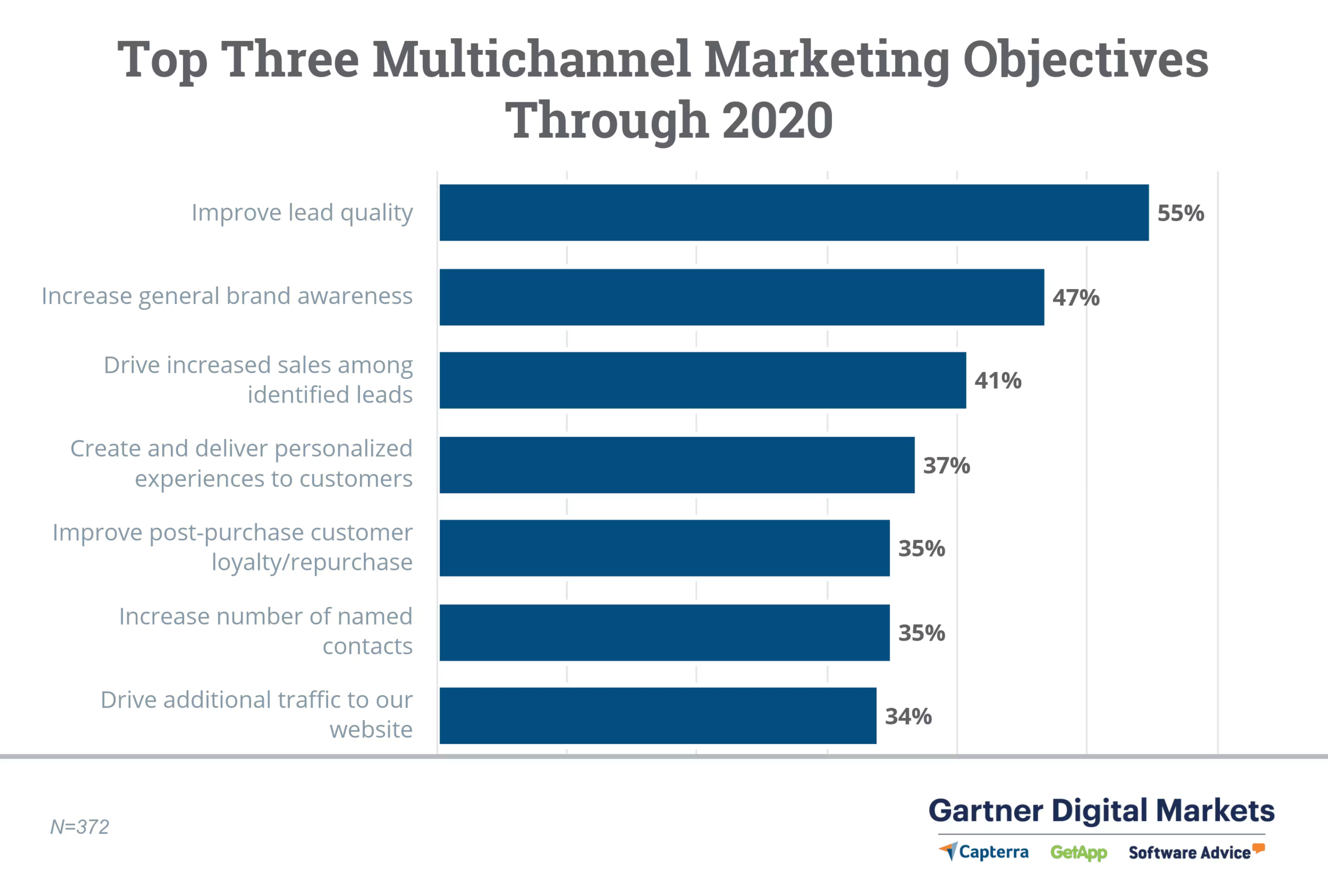Are your marketing channels being properly managed, or are you blind to potential disaster? Read on to see how you can tell the difference.

Marketing channel management (MCM) is a lot like juggling. You have to keep multiple things in motion, it takes years of practice to get right, and the only time people are paying attention is when you've dropped it all.
But that's where the similarities end.
Are you ready for the biggest difference?
Companies can have thriving or suffering MCM campaigns, but without careful monitoring it's impossible to determine how yours is doing, and why.
3 simple steps to fixing your MCM
How can you make sure your marketing channel management is actually working? Simple: follow these three main steps.
1. Make sure what you're measuring is related to your goals
This might seem pretty simple, but according to a 2018 Gartner survey, this is something many companies struggle with.
Just look at this chart showing the objectives of different multichannel marketers:

Far and away, the most important goal for a multichannel marketer is improving lead quality.
However, that same survey found that the most common metric for a successful multichannel marketing campaign is customer satisfaction: 19.6% of respondents cited it as the most important key performance indicator (KPI), more than double the respondents who ranked lead quality first.
If your goal is to improve your lead quality but you're measuring your success based on customer satisfaction, how are you going to be able to tell if you're meeting that goal?
Short answer: You aren't.
Our recommendation: Look at all of the multichannel marketing campaigns you've run in the past and how you measured their success. Now look at all of your company's goals for this year, and see what measurements overlap with those goals.
Stop measuring everything else and focus on the measurements that track the success of your company's goals. And if you aren't measuring something that you need to determine the success of your goals? Well, you know what to do.
2. Focus on your customers and use their data appropriately
There's a reason all of those surveyed businesses use customer satisfaction as a metric for success. It yields actual results.
In that same survey, Gartner found that 26% of companies that focused on their customers saw a significant improvement in conversion rate by channel and 27% saw a significant improvement in the average value for each order between 2017 and 2018.
The easiest way to improve customer satisfaction is by knowing as much as you can about them; i.e., understanding your available customer data. But how exactly do you do properly manage all of that?
By following two simple rules:
Invest heavily in customer data management.
Focus your investments on both data management and personalization software.
Our recommendation: Invest in multiple tools for both data management and personalization; 50% of your competitors have two or more tools for each of the following subcategories:
Data management Data collection. Customer profile unification. Rules-based segmentation
Personalization Prediction and decisioning. Activation
These investments will render your multichannel marketing more effective, while also improving your customers' experience by valuing their time and creating more cohesive and comprehensive personalization efforts.
3. You don't need to be involved in everything; focus on bigger impact moments throughout the funnel
Not all marketing moments are created equal. Some moments are significantly more important, and some channels carry more weight.
Social media is great for building awareness, and chatbots are a great tool for the first time a lead visits your website.
But how can you pick which channels to focus on and when? Each one costs money, and now that you know you need to invest in software, how can your business afford everything?
Our recommendation: Cut back on the number of marketing channels you're using. Some of them don't merit your time, content, and resources for the amount of impact they have.
The average number of channels companies use? Seven. Any more than that is too much. Focus on your best-performing channels for each funnel stage to free up time and resources for software investments and bigger-impact channels.
This will also make room to focus on making a stronger case for real-time engagement, which can help set you apart from your competition.
More tips for your marketing channel management efforts
These first steps will set you on the road to improving your marketing channel management strategy. Building a successful MCM takes time and effort, but doing so is the only way your business will survive.